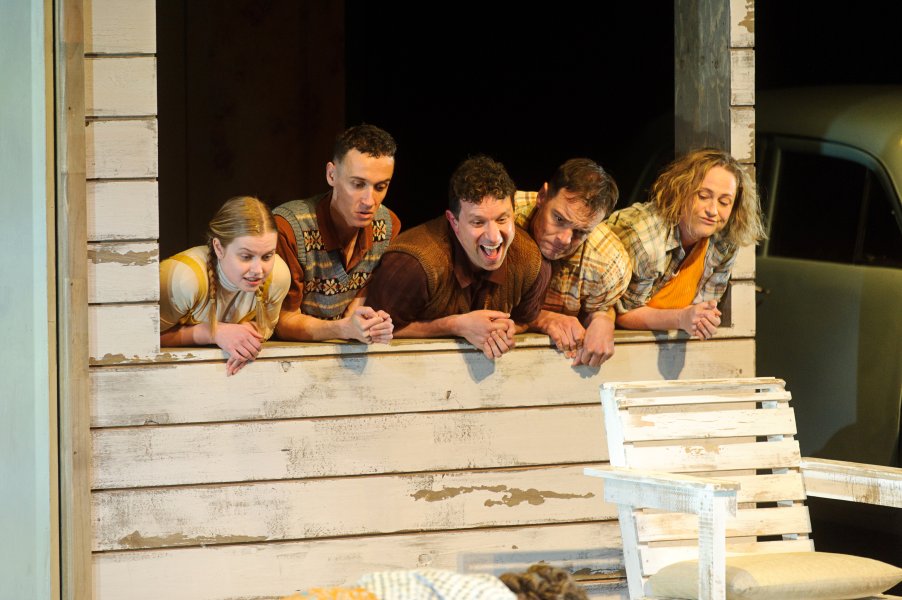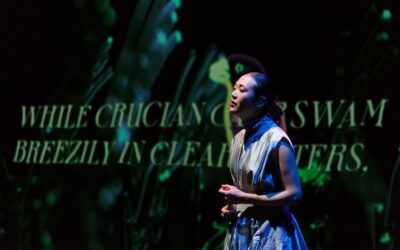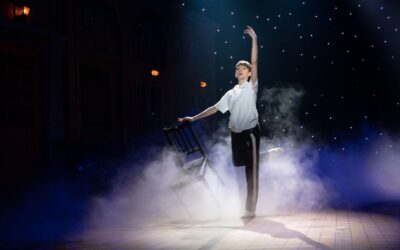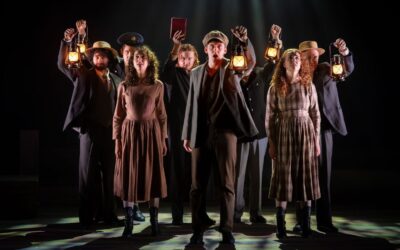By Adam Rafferty
As one of our most prolific playwrights, Melbourne’s own Patricia Cornelius hasn’t had her works produced by our mainstage theatre companies nearly as often as you might think. Considering how well her writing captures uniquely Australian voices it seems like an oversight that may finally be seeing some correction with both the Melbourne Theatre Company and Sydney Theatre Company putting Cornelius’ plays front and centre in their 2023 seasons.
Directed by her long-time collaborator, Susie Dee, My Sister Jill is a semi-autobiographical play, based on Cornelius’ own novel, and reflective of George Johnston’s classic 1964 novel My Brother Jack. Both telling stories of the destructive legacy left behind by experiences of war (World War I, in ‘Jack’ and WWII in ‘Jill’). In Cornelius’ case, her saga involves a family of seven – father Jack, mother Martha, and siblings Jill, Johnnie, Mouse, Door and Christine.
The title of the play and the soliloquising of Jill (Lucy Goleby) by young Christine (Angourie Rice), initially gives the impression that Christine is the story’s narrator, as representation of Cornelius. However, writer and director have devised this production as a very even-handed representation of the family as a whole. Sure, Christine is often pushing her former prisoner-of-war father Jack (Ian Bliss) to tell adventurous tales of survival on the Thai-Burma Railway, or being shipwrecked on the way to Japan, but many moments are played out as though from the points of view of the other characters, or less clearly from Christine’s youthful impression.
Jack’s PTSD makes him a hard man to live with. While loving and supportive of his family, he rules with an iron fist and the damage he has suffered from the war often causes him to be implacable and to fail at work and in his responsibilities. He beats Johnnie (James O’Connell) for wetting the bed, he berates inseparable twins Door (Benjamin Nichol) and Mouse (Zachary Pidd), physically forcing them apart with “You’re not Siamese” ringing in their ears. His wife Martha (Maude Davey) is sympathetic to his trauma and tries to temper his rages, while also encouraging the children to show greater kindness to their father, but the boisterous natures of her children can’t help but take over.
Most rebellious against her father is oldest child Jill. Taking the role of protector for her siblings, she comforts them after they’ve been scolded and challenges her father at every turn. When Martha and the kids are left outside in the car (credit to set designer Marg Horwell and the entire scenic production team for a stunningly restored 1953 FX Holden) while Jack drinks in the pub, it’s Jill who boldly swaggers into the bar to demand he take them home, leading to life changing consequences.
As time moves on, Jill becomes an anti-war protestor and the boys of the family are affected by the Vietnam war national service conscription, while Martha feels the need to push Johnnie out of the nest.
Certainly, the inheritances of war are the key driver of Cornelius’ narrative, but it does feel like there is a missing thread in this story to pull the plot together on a linear weft. Perhaps it’s due to the truth of this story and the fact life doesn’t always happen in a straight line, but ultimately much of this play feels like vignettes, rather than a cohesive storyline. But what it does incredibly well is reflect Australian life and language in the post-WWII era in a way that feels unique to us, and important to our cultural record. The love and pride in this story are evident from the top to the toe of the production.
Dee and Cornelius clearly work together with great simpatico, which results in a staging that harmonises perfectly with the writing. Acting performances are uniformly excellent across the board, and it’s worth noting how pleasing it is to see rising Hollywood star Rice, return home to perform an Australian story for Australian audiences (having this to do during the US writers/actors strike seems almost prescient!) Marg Horwell’s set design is sparse and simple, but it clearly evokes the era and works effectively, just as her evolving costumes do too. Rachel Burke’s lighting design directs the eye subtly, while her recreation of bonfire night fireworks is thoroughly charming.
While it forces no judgements or opinions, and as such lacks a little bit of narrative punch, My Sister Jill powerfully captures the impacts that war has had on Australian families across generations, and as such should become a new classic of our stages.
Image: Sarah Walker





